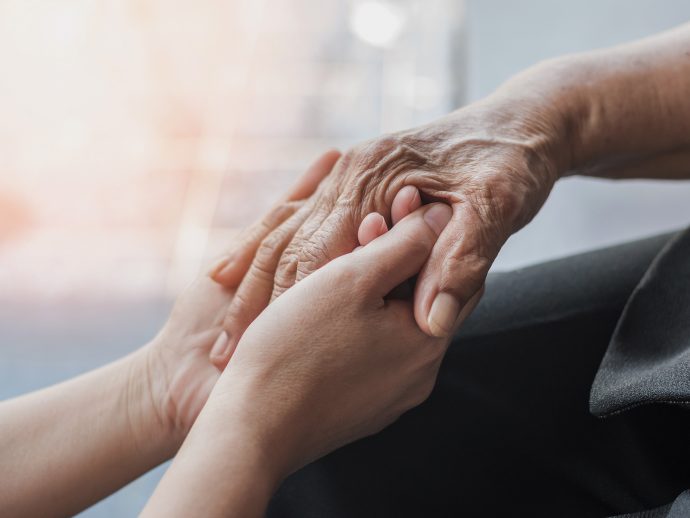Support a loved one with cancer
A cancer diagnosis can leave friends and family unsure of how best to support a loved one. Are there topics that shouldn’t be broached? What if the wrong thing is said? These suggestions may help you to help a loved one through a cancer diagnosis.
1. Listen
This simple—but powerful—suggestion underpins any other piece of advice. Here are some examples.
Don’t lead the conversation
If your friend wants to talk about the weather or their new shoes, follow along. If the conversation turns to reflections on mortality, fear, and grief, resist the urge to steer back to sunny, happy, shiny things.
Clock nonverbal cues
Is your friend or loved one feeling up to a visit today? Are they tired or in pain? Clarify your suspicions with gentle inquiries.
Process your own reactions outside of your visit
Describing your struggle with their diagnosis may prevent further sharing while taking the focus off their needs.
2. Respect boundaries
Some people choose to announce their diagnosis to 1,000 followers while others tell only their immediate families. This is an intensely personal decision. Avoid taking offence if friends choose to go through cancer privately.
3. Be patient
Some treatments last for months, while others continue for a lifetime, but over time the need for support is no less present. Provide consistent help or check in intermittently over the long term.
4. Watch your words
Be mindful of words—like the following—that may cause unintentional harm.
“Be positive!”
Encouraging positivity can backfire catastrophically. What happens if cancer returns? Was it a lack of positivity? These well-intentioned words may lead to self-blame and prevent acknowledgement of the spectrum of feelings that cancer unleashes.
“You have to fight this!”
Like positivity, staging the proverbial “battle” with cancer risks turning into self-blame if the war is “lost” and cancer progresses.
Avoid not-so-helpful words
These phrases may not bring the comfort they intend:
- “That’s a good cancer to have.”
- “Why don’t you try eating/drinking/taking ____.”
- “Don’t worry.”
If you don’t know what to say, be honest about feeling at a loss. Your friend may feel the same way. If you need to remove your foot from your mouth along the way, do so and move on.
5. Make plans
Offer invitations to social events rather than assuming a loved one can’t come. Be understanding of last-minute cancellations.
6. Make concrete offers
Avoid saying things like “call if you need anything.” Nebulous suggestions burden the person with cancer with the task of figuring out how you can help them. Offer to drive them to an appointment or bring a meal, for example.
7. Support the supporters
If you visit a person with advanced needs, encourage carers to eat, rest, or leave the home during this time. Helping carers arrange alternate care will allow them to recharge and continue their support.

